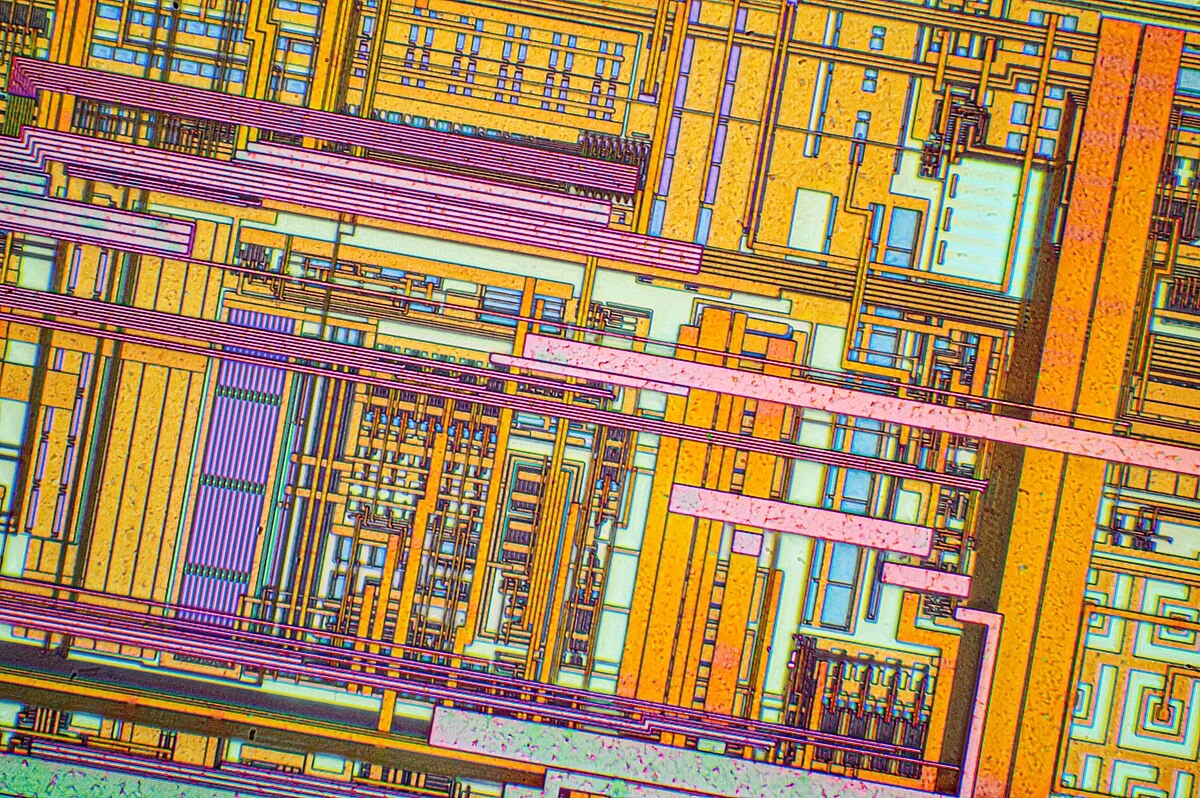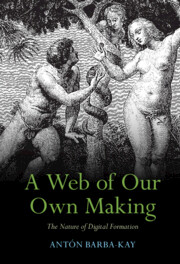As I’ve noted before, Philip Rieff argued that Freud’s genius consisted in his ability to convince us of the “superior wisdom of choosing the second best.” Sixty years later, we have Anton Barba-Kay, in A Web of Our Own Making, arguing that the internet has done the same thing, though since the digital makes everything easier, we’re spared the effort of reading Freud (or perhaps much of anything) for ourselves. Instead, we have only to jump into the digital world, which teaches us that happiness-right-now is the highest good, even as it redefines what happiness means to make this shallow version more achievable.
A Web of Our Own Making defies easy summary, but a few key insights form the parts that add up to its whole. First, the author argues that because the web reifies the quantifiable, and as more and more of our lives are lived in the digital universe, we get more and more pressure to recast what it means to be human in quantifiable terms. This pressure has a variety of consequences including, for instance, the pressure to see ourselves in terms of Big Data-generated statistical averages. I’m reminded here, by contrast, of Ivan Illich’s reflections on medicine: I may be in a high-risk category for heart disease, but the fact remains that I am me, neither a category nor a statistic.
The privileging of quantifiability is related to another of Barba-Kay’s key themes: a needed reminder that the internet’s function is largely to obtain “attention measurably captured. Its most reliable means of centralizing attention is to personalize its content, to get to know you better so you can better know what to get” (59). To the rejoinder that we know deep down you can’t buy happiness, Barba-Kay argues that there’s a solution to that problem: redefine happiness so that it can be purchased. In a wonderful section, he discusses how internet-addicted people can purchase apps to regulate their own screen time. We’ll sell you the disease and the cure, never fear. Anecdotally, at the Three Bears food market in Butte, Montana, your kids can push toddler-sized shopping carts with flags that read: “customer in training.” We should put that slogan on the dollar bill. One thinks here of Lenin’s dictum that capitalists would sell him the rope with which he’d hang them. The end of the USSR doesn’t nullify the looming plausibility of Lenin’s remark: perhaps it’s just taken a bit longer than Lenin forecast, for market-driven Progress to begin collapsing under its own weight.
One of Barba-Kay’s most important insights, I think, is to observe the cognitive dissonance between, on the one hand, our increasing tendency to want to be ruled by unaccountable experts, with the internet’s tendency to give us a God-complex as it privileges our individual choices, on the other. This observation leads to two further ones, both of deep concern to those of us with an interest in and affection for the local. First, Barba-Kay points out that the digital emphasis on quantitative data collection provides yet another means of rendering local opinion superfluous. Here, I recall our “local” county health nurse, during COVID, pictured on the front page of the newspaper in a virtue-signaling t-shirt informing all of us rubes of her trust in The Science. Aside from the self-evident absurdity of the indefinite article, the clear message was: All the decisions that matter are the ones that happen elsewhere.
Further, the author argues that we’re actually in imminent danger of ceasing to be political animals at all. Politics being the art of asking “how should we live together?”, there’s little reason to wonder about such questions if we rarely or never, well, live together. Barba-Kay argues that we tend to resolve our cognitive dissonance by outsourcing all the choices that do matter and consoling ourselves with a plethora of choices that don’t. So we have no choice when it comes to closing local businesses, but that’s all right, you can still “decide” what to stream on TV or which people you want to yell at on the internet, since those sorts of choices are free in inverse proportion to their significance.
Invariably, one reads such a book and wonders: “What do we do?” Here, the author is refreshingly honest about what he does and doesn’t know. Barba-Kay offers no grand program, and certainly no handy app you can download, to save us from a future where our digital selves are more “real” (because more attention-inducing) than our fleshly ones. The prospect of this was at the core of Daniel Boorstin’s The Image (1962); this problem has been a long time coming. So, it would be unfair to expect Barba-Kay to magically solve it for us in a couple thousand pages, not to say 284 (including the footnotes). On the other hand, he does offer us a kind of Augustinian reminder that all things start with personal sanctity:
I think the answer is so obvious to all of us that most practical suggestions are convoluted self-evasions. Work to cut [engagement with the digital universe] down (or out). Reduce your dependence. Do not address it as you. Uncouple your mind from what is mindless aggregate. Do not fight it directly (since that too is its power to shape) but work to change the subject altogether…. At any rate, work to see that part of what we are buying into is an instrument for forgetting the meaning of what’s most meaningful—an instrument for forgetting death and therefore an instrument of death itself. (246)
Medieval and modern monks knew and know that a key remedy for acedia is to contemplate death every day. As perhaps the central affliction of our time, we don’t have to let digital obsession sink us even further into acedia than we have already. I recently read Matt Stewart’s discussion of the Postman Pledge, here on FPR. To me, this has the sound of what Barba-Kay is after, and I think he’s right.
Finally, I would be remiss if I failed to comment on Barba-Kay’s post-script, which he titles “From My Inbox.” Written in the best tradition of Dostoevskii’s Grand Inquisitor, he has penned a rebuff to his own argument that is so convincing, so N.I.C.E. in fact, that the reader can’t help but wonder if Barba-Kay’s own grand inquisitor isn’t right when he argues that
we are offering something much better than the old gods: we are giving people real hope by offering them a way of understanding and improving their lot as they see fit in this world. We are offering to free people from chance, from fear, and from physical coercion—we can promise to increase human beings’ overall satisfaction with life. Regardless of whether you harbor some Very Serious Reservations, these are the correct things to strive for in all realism; this is the only good direction to gamble on. (256)
Like Dostoevskii’s devil’s-advocate argument that we can talk about righteousness only after we’ve eaten, such points deserve careful response. But for those of us who still want to remain human, our answer to the seemingly invincible colonial ambitions of the digital can only be a firm “No.” Scanning a list of available jobs for which I might be qualified, I can only hope that such a “No” will not someday force me to choose between bread and righteousness. But if it does, then so be it. I will settle for neither the Freudian nor the transhumanist digital edition of Second Best.
Image credit: via Wikimedia Commons








5 comments
Rob G
Thanks for this, Aaron. I’m on my second reading of this remarkable book, and will be sharing your review with others.
Aaron
Rob:
Yes, I’ll certainly be re-reading it in future. I’m hoping we can get the author to write something for FPR. Give me a shout when you get finished. I’d be interested in talking about it with some others.
Aaron
Rob G
Will do!
Martin
Super review of a fascinating book. I was surprised to find myself nodding at almost every sentence in your third paragraph, though I chuckled about “customer in training” which is simple theatrics: it can deepen the suggestibility, or alternatively alert you to it if you’re already sensitive.
The book’s suggestions were less impressive, and the two long quotes even seem verbose or tongue-tied, which makes me feel your summaries are more cogent than the book itself.
The sober quote from Ivan Illich about statistics reminds me of one from a friend who was looking for a job decades ago. “They say there are only 10 openings for 100 applicants, but I myself only need ONE job.”
Rob G
The book is somewhat “verbose” and rather dense, but it seems to me to spring from a desire on the part of Barba-Kay to be thorough and precise. I have read many books on this subject and this one is definitely the most philosophically trenchant.
Comments are closed.